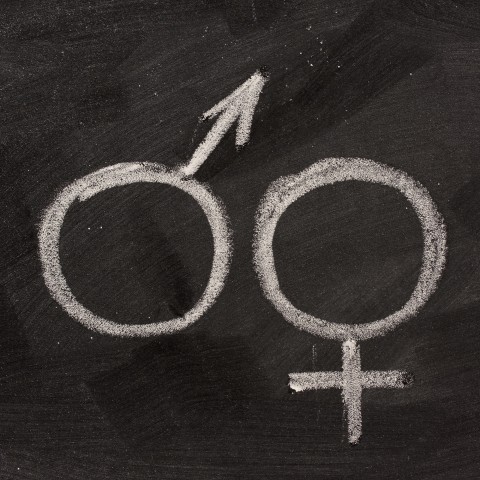In the Greek language, there are three genders: masculine, feminine, and neuter. Each noun in Greek has a specific gender and—unlike in English—these genders don’t only apply exclusively to nouns referring to people, but also to nouns that refer to things or animals. Therefore, gender should be viewed as a grammatical attribute of a noun and not necessarily as the sex of a person, animal, or thing.
The gender roles in Greek society are deeply influenced by the patriarchal family model, although it has been modernized over the past few decades, attempting to ensure that women are equal to men. If you take a look at Greek mythology, the gods normally represent physical power, whereas goddesses represent wisdom, love, and organization. However, today’s Greek society is quite balanced when it comes to the differences between the two genders.
In this article, we’ve gathered all the tips and tricks to help you understand grammatical Greek genders.
Table of Contents
- The Word “Gender” in Greek
- Articles in Greek According to Their Gender
- Guessing the Gender of a Word in Greek
- Memorizing the Gender of a Noun in Greek
- Gender Variations for Adjectives
- Conclusion
1. The Word “Gender” in Greek
- Greek: γένος
- Romanization: yénos
- Translation: “gender”
The word above is utilized in grammar to express the gender of a noun or an adjective.
- Greek: φύλο
- Romanization: fílo
- Translation: “gender”
This one is utilized in everyday speech to express the gender/sex of a person.
In Greek grammar, we use the word γένος, therefore there are three genders, which are: αρσενικό (arsenikó) meaning “masculine,” θηλυκό (thilikó) meaning “feminine,” and ουδέτερο (udétero) meaning “neuter.” These genders characterize nouns, adjectives, articles, and some pronouns and participles.
2. Articles in Greek According to Their Gender
The definitive articles in Greek are: ο (masculine), η (feminine), and το (neuter). They change depending on the grammatical case, though they all translate to the English word “the.”
Masculine Definitive Article:
Nominative: ο
Genitive: του
Accusative: τον
Feminine Definitive Article:
Nominative: η
Genitive: της
Accusative: τη(ν)
Neuter Definitive Article:
Nominative: το
Genitive: του
Accusative: το
Here’s an example of how these definite articles can be used in everyday conversations.
- Greek: Στο εστιατόριο ο άντρας κοιτούσε τον κατάλογο, η γυναίκα κοιτούσε το κινητό και το παιδί έπαιζε με τα παιχνίδια του.
- Romanization: Sto estiatório o ándras kitúse ton katálogo, i yinéka kitúse to kinitó ke to pedí épeze me ta pehnídia tu.
- Translation: “In the restaurant, the man was looking at the menu, the woman was looking at the phone, and the child was playing with his toys.”
The indefinite articles in Greek are: ένας (masculine), μια/μία (feminine), and ένα (neuter). They also get inflected according to the case.
Masculine Indefinite Article:
Nominative: ένας
Genitive: ενός
Accusative: έναν
Feminine Indefinite Article:
Nominative: μια
Genitive: μιας
Accusative: μια
Neuter Indefinite Article:
Nominative: ένα
Genitive: ενός
Accusative: ένα
Here’s an example of how to use indefinite articles.
- Greek: Ένας άντρας, μια γυναίκα και ένα παιδί έκατσαν στο δίπλα τραπέζι.
- Romanization: Énas ándras, mia yinéka ke éna pedí ékatsan sto dípla trapézi.
- Translation: “A man, a woman, and a child sat on the nearby table.”
3. Guessing the Gender of a Word in Greek
Recognizing the gender of a noun in Greek can be tricky, since all of these get inflected, resulting in different endings depending on the case they’re used in. However, in this section, we’ll refer to the most popular masculine, feminine, and neuter noun endings in the nominative case (i.e. the dictionary form).
Masculine endings:
-ος Examples: ο άνθρωπος (o ánthropos) meaning “the human”; ο καιρός (o kerós) meaning “the weather”; ο ήλιος (o ílios) meaning “the sun”; ο κόσμος (o kózmos) meaning “the world.”
-ας Examples: ο μπαμπάς (o babás) meaning “the father”; ο άντρας (o ándras) meaning “the man”; ο κανόνας (o kanónas) meaning “the rule”; ο ελέφαντας (o eléfandas) meaning “the elephant.”
-ης Examples: ο λογιστής (o loyistís) meaning “the accountant”; ο υπολογιστής (o ipoloyistís) meaning “the computer”; ο πελάτης (o pelátis) meaning “the customer”; ο μαθητής (o mathitís) meaning “the student.”
-ες Examples: ο καφές (o kafés) meaning “the coffee”; ο λεκές (o lekés) meaning “the stain.”
-ούς Examples: ο παππούς (o papús) meaning “the grandfather.”
-έας Examples: ο γραμματέας (o gramatéas) meaning “the secretary.”
Feminine endings:
-ος Examples: η μέθοδος (i méthodos) meaning “the method”; η άνοδος (i ánodos) meaning “the rise”; η κάθοδος (i káthodos) meaning “the descent”; η οδός (i odós) meaning “the street”; η λεωφόρος (i leofóros) meaning “the avenue.”
-α Examples: η μητέρα (i mitéra) meaning “the mother”; η καρέκλα (i karékla) meaning “the chair”; η θάλασσα (i thálasa) meaning “the sea”; η ώρα (i óra) meaning “the hour”; η αγελάδα (i ageláda) meaning “the cow.”
-η Examples: η λέξη (i léxi) meaning “the word”; η αγάπη (i agápi) meaning “the love”; η ψυχή (i psihí) meaning “the soul”; η ζάχαρη (i záhari) meaning “the sugar”; η οθόνη (i othóni) meaning “the monitor.”
-ού Examples: η μαϊμού (i maimú) meaning “the monkey.”
-ώ Examples: η ηχώ (i ihó) meaning “the echo.”
Neuter endings:
-ος Examples: το λάθος (to láthos) meaning “the passion”; το γεγονός (to yegonós) meaning “the incident.”
-ο Examples: το φυτό (to fitó) meaning “the plant”; το βιβλίο (to vivlío) meaning “the book”; το γραφείο (to grafío) meaning “the office”; το ξενοδοχείο (to xenodohío) meaning “the hotel”; το λεωφορείο (to leoforío) meaning “the bus.”
-ι Examples: το σπίτι (to spíti) meaning “the house”; το κουτί (to kutí) meaning “the box”; το πουλί (to pulí) meaning “the bird.”
-α Examples: το πρόβλημα (to próvlima) meaning “the problem”; το μάθημα (to máthima) meaning “the lesson”; το θέμα (to théma) meaning “the subject.”
-ιμο Examples: το φταίξιμο (to ftéximo) meaning “the fault”; το πλύσιμο (to plísimo) meaning “the washing.”
Major Exception:
There are some neuter nouns ending in -υ, which are the following:
- βράδυ (vrádi) — “night”
- στάχυ (stáhi) — “ear; the plant”
- δόρυ (dóri) — “spear”
- οξύ (oxí) — “acid”
- δίχτυ (díhti) — “net”
- δάκρυ (dákri) — “tear”
For more information on how to tell the gender of a noun, check out this video lesson.
4. Memorizing the Gender of a Noun in Greek
As you might have noticed, the -ος (-os) ending is found in nouns of all three genders, so it’s difficult to guess the gender by the ending. In this case, you should try to find another nearby word, preferably an article, which indicates the gender of the noun.
But what if there’s no indication of the noun’s gender around? Then, you can check if the noun is stressed on its last syllable; if it is, you can at least be sure that it’s not a neutral noun.
Another tricky part of the Greek language gender rules which confuses a lot of learners is the fact that there are many nouns that end with -ος (-os), which can be either masculine or feminine. Those usually indicate a profession, such as ο/η γιατρός (o/i yatrós) meaning “doctor” or ο/η δικηγόρος (o/i dikigóros) meaning “lawyer.”
It’s easy to guess the gender of some Greek nouns that refer directly to a specific sex, like the words μητέρα or μπαμπάς, because they follow their sex. But that’s not always the case. For example, το αγόρι (to agóri) meaning “the boy” is not a masculine noun; it’s neuter!
The best thing you can do to memorize the gender of a noun in Greek is to learn the noun in its dictionary form together with its article. For example, the word γάλα (gála) meaning “milk” which ends in -α could give the impression that it’s feminine—but it’s neuter. So memorizing it as το γάλα (to gála) instead could help you avoid that confusion.
5. Gender Variations for Adjectives
Adjectives can vary depending on the gender of the noun they define. Each adjective changes its ending in a different manner.
Let’s have a look at some examples below.
Normally, when the male adjective ends in -ος, then the feminine ending will be -η and the neuter ending will be -ο.
– καλ-ός / καλ-ή / καλ-ό
- Greek: Αυτός o δάσκαλος είναι πολύ καλός.
- Romanization: Aftós o dáskalos íne polí kalós.
- Translation: “This (masculine) teacher is very good.”
- Greek: Αυτή ή δασκάλα είναι πολύ καλή.
- Romanization: Aftí i daskála íne polí kalí.
- Translation: “This (feminine) teacher is very good.”
- Greek: Αυτό το παιδί είναι πολύ καλό.
- Romanization: Aftó to pedí íne polí kaló.
- Translation: “This kid is very good.”
In the same manner, indicatively, the following adjectives change their ending when referring to masculine, feminine, or neuter nouns:
ελεύθερος (eléftheros) — “free”
άρρωστος (árrostos) — “sick”
όμορφος (ómorfos) — “good-looking”
άσχημος (áschimos) — “ugly”
έξυπνος (éxipnos) — “smart”
Another common category of adjectives includes masculine adjectives ending in -ος, changing the feminine to -α and the neuter to -ο.
– άδει-ος / άδει-α / άδει-ο
- Greek: Ο χώρος ήταν άδειος.
- Romanization: O hóros ítan ádios.
- Translation: “The space was empty.”
- Greek: Η αίθουσα ήταν άδεια.
- Romanization: I éthusa ítan ádia.
- Translation: “The classroom was empty.”
- Greek: Το κουτί ήταν άδειο.
- Romanization: To kutí ítan ádio.
- Translation: “The box was empty.”
In the same manner, indicatively, the following adjectives change their ending when referring to masculine, feminine, or neuter nouns:
ωραίος (oréos) — “nice”
άγριος (ágrios) — “wild”
γαλάζιος (galázios) — “light blue”
γελοίος (yelíos) — “ridiculous”
αιώνιος (eónios) — “eternal”
Another category of adjectives affected by the gender of the noun is as follows:
– βαθ-ύς / βαθ-ιά / βαθ-ύ
- Greek: Ο βαθύς ποταμός.
- Romanization: O vathís potamós.
- Translation: “The deep river”
- Greek: Η βαθιά λίμνη.
- Romanization: I vathiá límni.
- Translation: “The deep lake”
- Greek: Το βαθύ πηγάδι.
- Romanization: To vathí pigádi.
- Translation: “The deep water well”
In the same manner, the following adjectives change their endings when defining masculine, feminine, or neuter nouns:
ελαφρύς (elafrís) — “light”
βαρύς (varís) — “heavy”
μακρύς (makrís) — “long”
πλατύς (platís) — “wide”
παχύς (pahís) — “thick”
If you’re interested in learning more about Greek adjectives, you’re in luck!
Just take a look at our article on the Top 100 Greek Adjectives. And if you feel like digging deeper into Greek grammar, check out lessons 13-17 of our Intermediate series.
6. Conclusion
Recognizing the gender of each noun in Greek isn’t easy. We get it. However, if you follow the above tips and tricks, you’ll be able to guess the gender of a noun or an adjective accurately in most cases. With experience, practice, and study, we’re sure you’ll soon become a master of Greek noun gender.
At GreekPod101.com, we aim to provide you with everything you need to know about the Greek language in a fun and interesting way. Stay tuned for more articles like this one, word lists, grammar tips, and even YouTube videos, which are waiting for you to discover them!
You can also upgrade to Premium Plus and take advantage of our MyTeacher program to learn Greek with your own personal teacher, who will answer any questions you might have!
In the meantime, is there a noun or adjective that troubles you? Let us know in the comments.
















